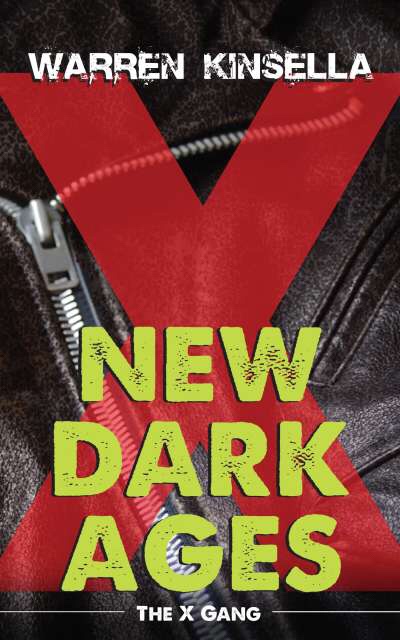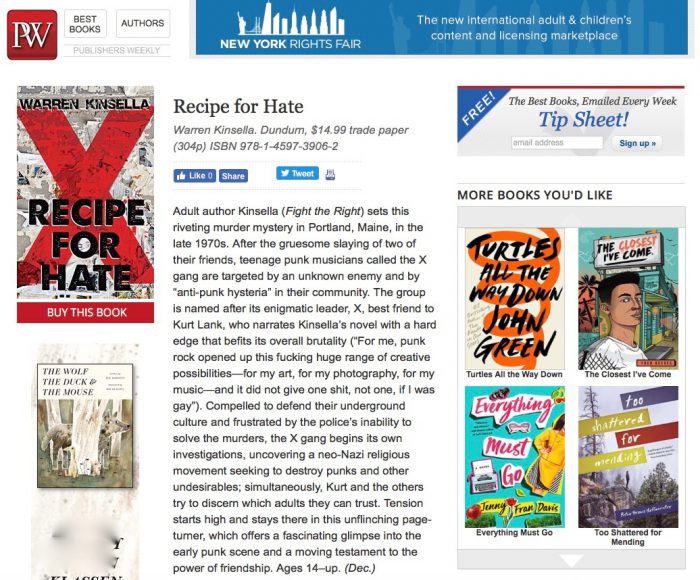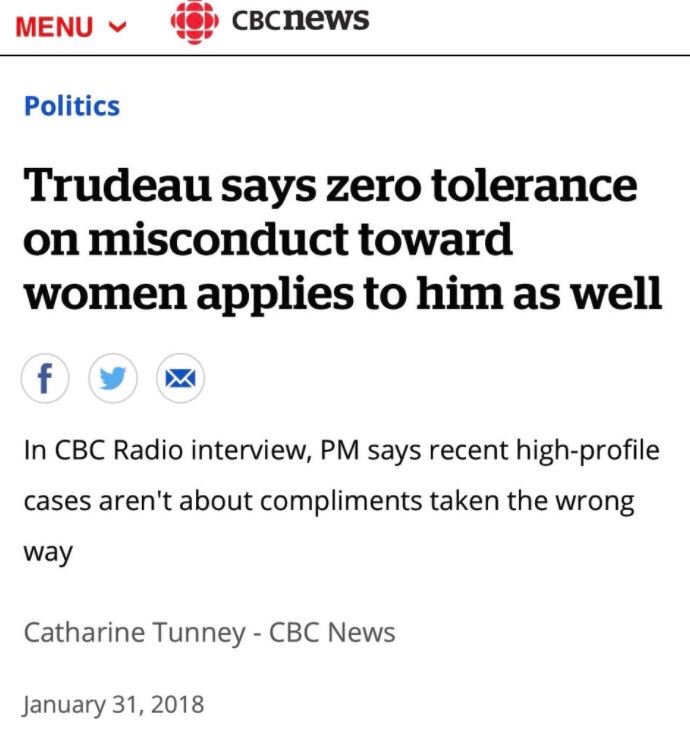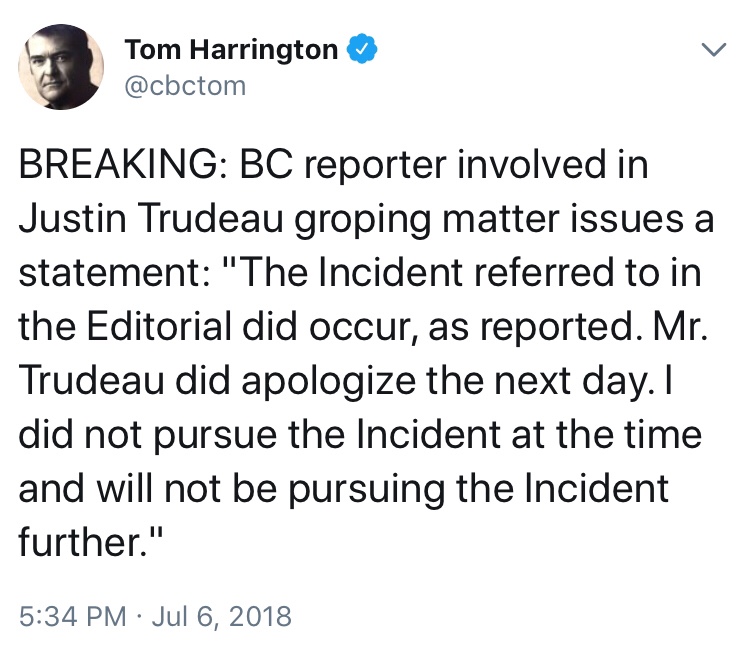Column: Trudeau is losing
Could Justin Trudeau lose the next election?
Well, sure he could. In strictly existential terms, you are always facing political death. The distance from hero to zero is very slight. Ask Kathleen Wynne.
After Trudeau won big in 2015 – after he came from a remote and distant perch in the House of Commons, from third place, to a first-place finish and a majority government – shell-shocked Tories could be seen walking around the Hill, muttering to themselves: “He’s good for eight years.”
I even heard that from rabid Trudeau-haters, people who had previously been cabinet ministers: eight years. The Opposition parties were leaderless, rudderless, hopeless. They’d been consigned to the political wilderness for a decade, possibly more.
Well, that was then, this is now. And, nowadays, Mr. Chewbacca Socks doesn’t look so invincible anymore, does he? The Force, not so strong with him.
A poll, in and of itself, is meaningless. The pollsters get stuff wrong all the time. But when you put a bunch of them together, they start to tell a tale. And the tale they tell should keep the Liberal leader up at night.
Case in point: CBC’s Calculator Boy is Eric Grenier. CBC calls him a “polls analyst,” but really what Grenier does is add up the poll numbers, and then divide. That sort of tells him, and us, where things are at.
For Trudeau, they’re not necessarily pointing towards oblivion. But some sort of a defeat, increasingly, looks possible. Ask Grenier.
“The Trudeau Liberals have a lot less to celebrate than they did in previous summers,” Grenier wrote just before Canada Day. “With little more than a year to go before the 2019 federal election campaign kicks off, the Liberals are facing a closer race than a first-term majority government might expect. The party’s lead in the polls has disappeared and Prime Minister Justin Trudeau is facing pressure from both the Conservatives in Quebec and the New Democrats in Ontario.”
Way back when, at the commencement of the Dauphin’s Sunny Ways Dynasty, he held a nearly 20-point lead over his opponents. His approval ratings were stratospheric.
Now, not so much.
The governing Grits are now locked in a statistical death match with the Tories – and, on some days, said Tories have even been ahead. The Conservatives – led by the remarkably unremarkable Blandy Scheer – have been kicking Trudeau’s keester in the fundraising department, and recently humiliated him in a Liberal-held riding in Quebec, Trudeau’s last provincial stronghold.
The reasons for the less-than-sunny days are myriad and manifold. Apart from cannabis – which hurts them in the aforementioned Quebec and among minority communities – Trudeau has not had a single major legislative victory in three years. Not one. His go-soft strategy for handling Donald Trump has contributed to the demise of the TPP, the Paris Accord, and has NAFTA edging its way towards the morgue.
Other causes, in Trudeau’s Summer of Discontent: he overpromised and under-delivered – with indigenous communities, and with the mythic middle class. He seemed more preoccupied with selfies and baby-balancing than he was with stuff like the dimensions of the deficit (big), or the dimensions of business confidence (small).
And: the India trip. And: the Aga Khan. And: he groped a journalist.
All of it has produced a confluence of conundrums: Justin Trudeau is now arguably treading in his father’s footsteps. From a big Trudeaumania victory (for his Dad in 1968, for him in 2015) to a big come-down (majority to minority for his Dad in 1972, from a majority to minority and possibly worse for the son in 2019). Could it happen?
Sure it could. His father’s first term was a veritable flood of legislative and political achievements: Pierre Trudeau promoted and protected NATO, advocated for bilingualism and multiculturalism, transformed Parliament, boosted francophones in the public service and the military, reformed and expanded Unemployment Insurance, rewrote tax laws, and increased the family allowance for the first time since 1945. In comparative terms, the younger Trudeau’s policy achievements have been a tiny trickle.
Voters know it, too. And that is why they have been discreetly edging away from Justin Trudeau, and embracing a decidedly lackluster alternative, in the form of Blandy Scheer. They have measured Justin Trudeau, and found him wanting. More sizzle than steak, etc.
Can he turn it around? As noted at the outset, of course. Nowadays, per Ferris Bueller, political life moves pretty fast. One day, the Progressive Conservative Party of Ontario is mired in a massive #MeToo scandal, and self-destructing. Just 134 days later, the same political party won a huge majority in the Ontario election race.
Justin Trudeau, similarly, can surprise us all. He still possesses charm and likeability in abundance. As handsy as he is, he is not unintelligent. His party has a formidable team of organizers and fundraisers in every region. He regularly benefits from being underestimated. And his two main opponents lack his political skillset, to say the least.
That all said, Justin Trudeau could still lose. And, at the moment, he is losing.
Not by much, but enough.





